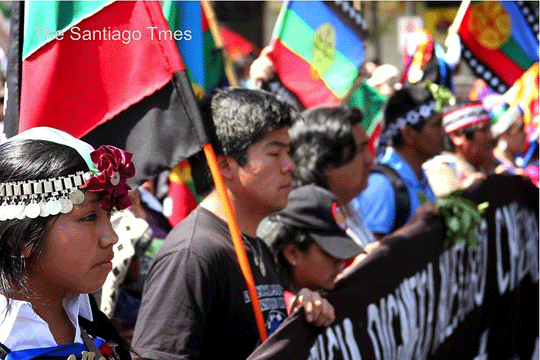



By Sam Edwards
Published On: Tue, Dec 3rd, 2013
UN-sponsored investigation examines long-running land rights issues in Ercilla, a focal point for tensions between indigenous groups and the government.

An UN-backed study into the indigenous Mapuche’s land rights claims is launched this week in Santiago. Photo by Sam Edwards / The Santiago Times
A study of the problems facing Chile’s indigenous Mapuche community in Ercilla, arguably the epicenter of tensions between activists, large landowners and the government, will be presented in the prestigious Universidad de Chile Law Faculty on Wednesday morning.
Though it focuses on one area 50 miles north of Temuco, the study — “Territorial inequality and social exclusion of the Mapuche people in Chile: The case of Ercilla from a rights perspective” — touches upon many issues common to wider indigenous groups’ attempts to reclaim ancestral lands.
Representing 11.3 percent of the population — according to a 2012 census — the Mapuche is Chile’s largest indigenous group, living in the central-south of the country.
Activists have been engaged in a struggle to accelerate the repatriation of traditional lands for more than two decades, but — as a U.N. report noted in September — the pace of devolution remains slow, and tensions across south central Chile have increased as a result.
The study was a joint project by the Economic Commission of Latin America and the Caribbean (CEPAL) — a U.N. body dedicated to the social and economic development of the region — and the Mapuche Territorial Alliance (ATM) — a campaign group that advocates repatriation of land.
Wednesday’s launch will present findings of the study as well as featuring panels, commentary and a range of guest speakers from both the university and Ercilla’s Mapuche community, including young leader Mijael Carbone. Taking place in the Aula Magna of Universidad de Chile Law Faculty, the event is open to the public and free to attend.
Source: The Santiago Times